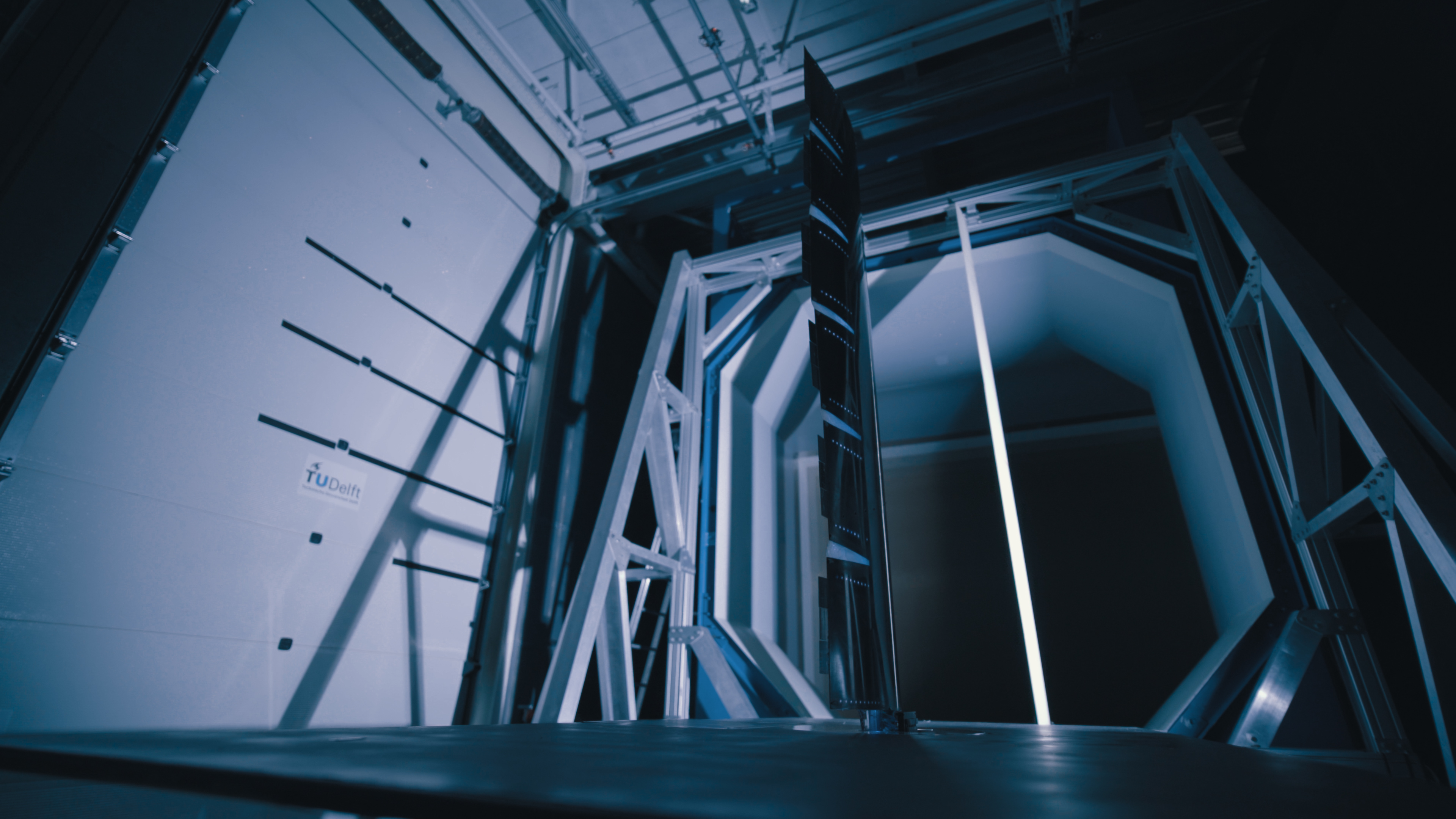In-depth knowledge and getting things done: TU Delft and aerospace start-ups successfully collaborate on sustainable aviation
Making aviation more sustainable by improving the aerodynamics of aircraft. That is the objective of two new collaborative projects between researchers from TU Delft (Aerospace Engineering), aerospace start-ups from the Aerospace InnovationHub@TUD and industry. It is precisely this combination of partners that allows innovations to find their way to the market quickly. Olaf van Campenhout of start-up Dimple Aerospace is a partner in the Turbulence Taskforce: "The collaboration ensures a symbiosis between in-depth industry expertise, groundbreaking new high-tech from the university, and the 'getting things done' mentality of the start-ups." Both projects have been awarded a grant from the ‘TSH Vliegtuigmaakindustrie’ subsidy scheme.
Both the Turbulence Taskforce and the RICHTING project are developing technological solutions that can improve the aerodynamics of aircraft. By optimizing the aerodynamics, an aircraft can fly more energy-efficiently. Their approach differs:
The Turbulence Task Force will develop the first commercially attractive technology for reducing turbulent frictional drag in aviation. Turbulence is the single largest source of fuel consumption in aviation accounting for half of global aviation greenhouse gas emissions. It is expected that this problem will only increase when aircraft start flying with new energy carriers, such as hydrogen, in the future. The less turbulent drag, the smaller the large storage tanks or fuel cells need to be. The Turbulence Task Force will investigate more than 20 technologies. The most promising two will then be further developed to a higher 'Technology Readiness Level'.
The RICHTING project will work on a next generation of smart and smartly coated sustainable aircraft wings. These 'morphing' wings reduce the drag of the aircraft. They do this by actively adapting their shape, both statically and dynamically, to the flight conditions. In addition, they are given a smart coating that reduces drag even further. The smart wing is also lighter in weight. The project will not only look at the application of morphing wings to regular aircraft designs, but also at what they can mean for ultra-efficient and radically new aircraft configurations, such as the Flying-V. In these ways, the project aims to dramatically reduce aircraft fuel consumption and emissions.
The opportunities of collaboration: Aerospace Innovation Hub@TUD
In both collaborative projects, researchers from the Faculty of Aerospace Engineering work together with start-ups that are part of the Aerospace Innovation Hub@TUD. Together with partners from the industry, they submitted proposals to the TSH Vliegtuigmaakindustrie grant programme. What makes this collaboration so promising? Researcher Roeland De Breuker, project partner in the RICHTING project: "By combining the fundamental view of the university and the applied view of start-ups in highly innovative research, you can more quickly translate research results into applicable technology. The Aerospace Innovation Hub@TUD brings these parties together and is therefore a valuable link between research, the market and society."
TSH Vliegtuigmaakindustrie
The TSH Vliegtuigmaakindustrie subsidy scheme is intended for companies or knowledge institutions that are active in the aircraft construction and manufacturing industry and that want to contribute to making aviation more sustainable. The scheme is also intended to strengthen the coherence between national subsidy programmes and the European Clean Aviation programme.
Turbulence Task Force:
Olaf van Campenhout
Dimple Aerospace
RICHTING:
Roeland De Breuker
Associate Professor of Aerospace Structures and Materials TU Delft
Aerospace Innovation Hub @TUDelft:
Femke Verdegaal
06 41 67 5241
More information about the TSH Aircraft Manufacturing Industry subsidy programme can be found on the RVO website.
